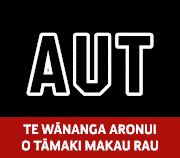If the debt is manageable, the topic can be covered when talking about budgets. However, if the debt is of concern, it may be useful to discuss it in a more structured and focused manner.
Debt can be another strong emotional topic so some groundwork may be necessary before launching into a conversation.
One way to do this is by discussing other financial matters first. Then you can slowly ease into a debt conversation in a more natural manner.
Examples of this could be
It was really good talking through our budget, can we take a closer look at our debt, I’m just not sure how much we actually have?
Next time we have a money conversation can we talk about our debt – It feels like we have a lot?
How do you know if you’ve got too much debt?
Many couples and individuals will have to take on at least some debt in their lifetime.
Problem debt arises when a pattern of revolving debt emerges – when one debt is being paid off by taking on another debt.
Unfortunately there is no quick solution to this situation.
However with honest communication between partners, a plan can be made to help limit spending more than you can comfortably afford.
Below is a guide to get started.
There are many options when it comes addressing debt – including utilising the support of a financial mentor, website tools and other services.
Make a list of all your debts such as mortgages, credit cards, car or student loans.

Divide your list into two categories: the debt you are okay with and the debt you’re not okay with. You might be comfortable having a mortgage, car payment or student loan.








Review the okay category. Are the payments more than you can manage on your current income? Can repayments be adjusted?








Total up the 'not okay with' category. Ask yourselves whether you are being realistic or if you're trying to live beyond your means. Talk about which debt you can commit to paying off first.








You need to consider outstanding and overdue amounts, penalties, interest, minimum repayments, and the possibility of negotiating lower repayments.








Create a plan that includes payment on the debt you've decided to pay first.








If you are in serious financial difficulty or just need some help or advice, there are options below that provide free financial support.








Getting support
If you feel like you have unmanageable debt, there are a range of different supports available.
You may also be eligible for Good Shepherd NZ’s DEBTsolve programme.

“At first I thought it was just another loan shark, but then I saw people commenting things like ‘this was really great for me’. I didn’t think something this good was possible.”
– Hannah, DEBTsolve client
Click here to read about Hannah’s experience




“It is great to have the strategies and challenges come together so that you are learning together, sharing together and discovering together”
– Toolkit user
Good Shepherd NZ in partnership with Dr Ayesha Scott
AUT Finance Department
Disclaimer
The information, content and materials provided in our Healthy Financial Relationships Toolkit is for general informational purposes only and does not take into account the financial situation and/or particular needs of any person. Before making important financial decisions, you should seek professional advice if possible. This Toolkit contains links to other third-party websites. Such links are only for the convenience of the reader, user or browser. Good Shepherd NZ and AUT do not endorse the contents of third-party sites.
Did you find this useful?
We are a not-for-profit organisation working to improve the financial and social wellbeing of New Zealanders.
The resources on this website are provided free of charge to make sure they are available for people who need them.
If your organisation found these resources helpful, please consider making a donation to ensure we can continue supporting those people who need our help.
You can also make a donation, or set up a recurring donation, by contacting us directly



